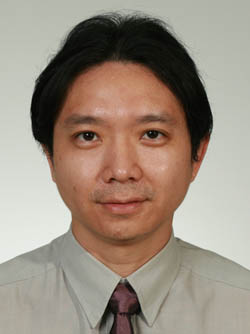
Yew-Soon Ong,
|
Abstract:
We are in an era where a plethora of computational problem-solving methodologies are being invented to tackle the diverse problems that are of interest to researchers. Some of these problems have emerged from real-life scenarios while some are theoretically motivated and created to stretch the bounds of current computational algorithms. Regardless, it is clear that in this new millennium a unifying concept to dissolve the barriers among these techniques will help to advance the course of algorithmic research. Interestingly, there is a parallel that can be drawn in memes from both socio-cultural and computational perspectives. The platform for memes in the former is the human minds while in the latter, the platform for memes is algorithms for problem-solving. In this context, memes can culminate into representations that enhance the problem-solving capability of algorithms. The phrase Memetic Computing has surfaced in recent years; emerging as a discipline of research that focuses on the use of memes as units of information which is analogous to memes in a social and cultural context. Memetic computing offers a broad scope, perpetuating the idea of memes into concepts that capture the richness of algorithms that defines a new generation of computational methodologies. It is defined as a paradigm that uses the notion of meme(s) as units of information encoded in computational representations for the purpose of problem solving. In this talk, the role of “memes” in computational intelligence, serving as building blocks for Evolutionary Optimization of Problem Instances is presented.
Bio Sketch:
Yew-Soon Ong is currently an Associate Professor and Director of the Center for Computational Intelligence at the School of Computer Engineering, Nanyang Technological University, Singapore. He received a PhD degree on Artificial Intelligence in complex design from the Computational Engineering and Design Center, University of Southampton, UK in 2003. His current research interest in computational intelligence spans across memetic computing, evolutionary design, machine learning, agent-based systems and cloud computing. He is the founding Technical Editor-in-Chief of Memetic Computing Journal, Chief Editor of the Springer book series on studies in adaptation, learning, and optimization, Associate Editor of IEEE Computational Intelligence Magazine, the IEEE Transactions on Systems, Man and Cybernetics – Part B, Information Sciences, Soft Computing, International Journal of System Sciences and others. He has coauthored over 120 refereed publications and his research grants in the last five years amounts to a total of more than 5 million Singapore dollars. These comprises of research funding from both national and international partners that includes the Singapore National Grid Office, A*STAR, Singapore Technologies Dynamics, Boeing Research & Development (USA), Rolls-Royce Singapore and Honda Research Institute Europe (Germany), National Research Foundation and Media Development Authority- Singapore-MIT GAMBIT Lab. Presently, he also Chaired the IEEE Computational Intelligence Society Emergent Technology Technical Committee from 2011-2012 and has served as Guest Editors of several journals including the IEEE Transactions on Evolutionary Computation. Presently, he Chairs the IEEE Computational Intelligence Society Intelligent Systems and Applications Technical Committee. His research work on Memetic Algorithm was featured by Thomson Scientific’s Essential Science Indicators as one of the most cited emerging area of research in August 2007. Recently, he also received the 2012 IEEE Transactions on Evolutionary Computation Outstanding Paper Award for his work pertaining to the modeling of Probabilistic Memetic Framework. In teaching, he has also received numerous awards including the Nanyang Excellence Award for Teaching in 2008, Most Popular Lecturer Award 2009, and recently invited as Fellow of Renaissance Engineering Programme at Nanyang Technological University.
